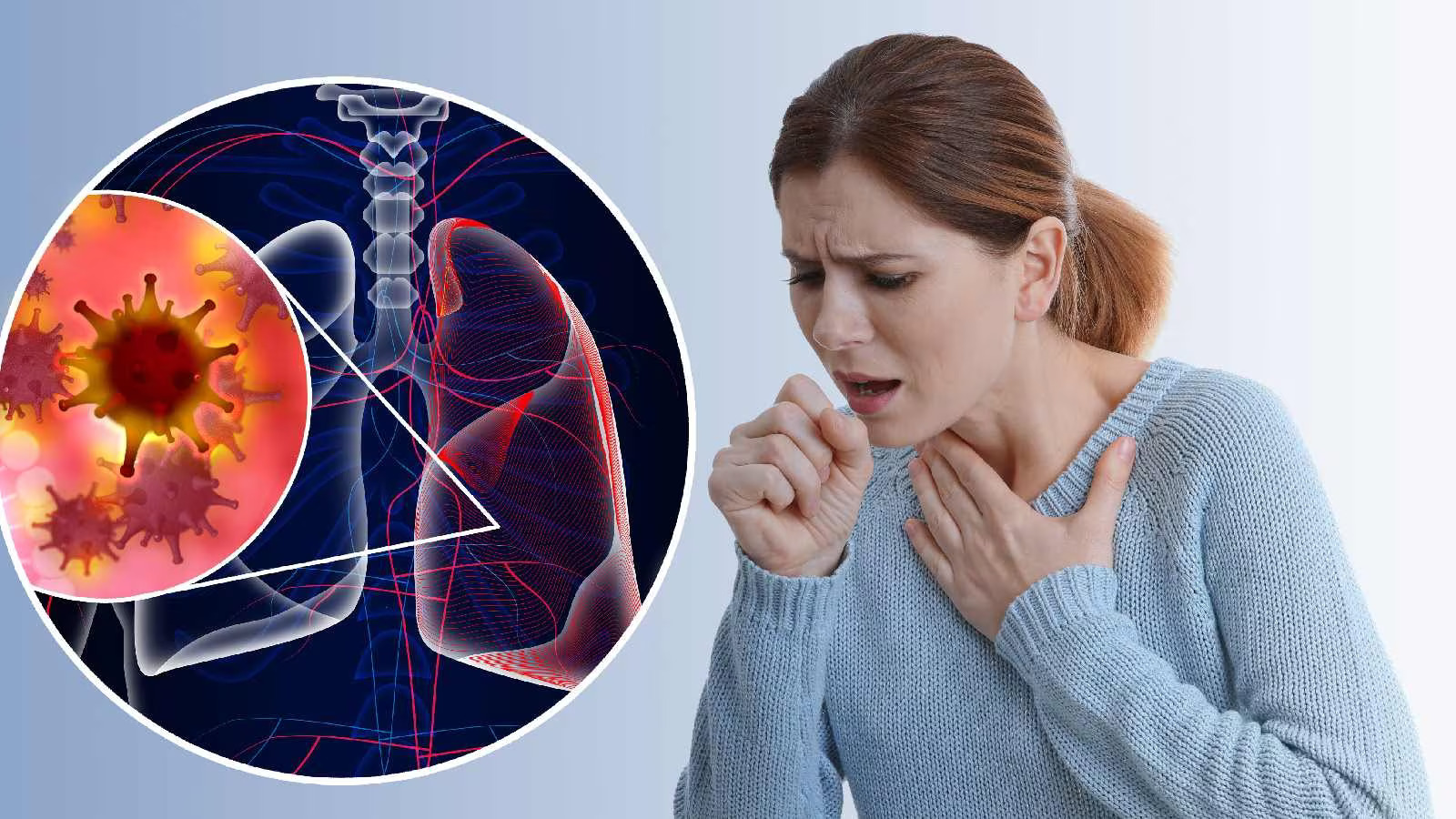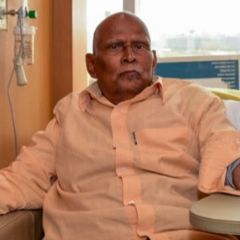"Best Oncologist in Delhi Dr. Sajjan Rajpurohit is one of the best cancer doctors I've ever had. He has always been there when I needed him, whether helping me with my diagnosis or just giving me regular checkups. I'm very pleased with his services and would highly recommend him to any of my friends."

Lung Cancer Specialist Doctor in Delhi
Lung cancer is a devastating disease that kills thousands of people every year. It’s important to be as informed as possible about the risks and lung cancer treatments available so that you can make the best decisions for your health and connect to a lung cancer specialist in Delhi. This blog post will explore the latest research on lung cancer, including risk factors, lung cancer treatment options, and prevention strategies. We’ll also dispel some myths about lung cancer so that you can be as informed as possible about this serious disease.
Type of Lung Cancer
There are two main types of lung cancer: small cell and non-small cell.
Small-cell lung cancer is the more aggressive of the two types and tends to grow and spread more quickly.
Non-small cell lung cancer is the more common type, and usually grows and spreads more slowly.
Stages of Lung Cancer
Lung cancer is a disease that develops when the cells in the lungs grow uncontrollably. The two main types of lung cancer are small cell lung cancer (SCLC) and non-small cell lung cancer (NSCLC).
There are four stages of NSCLC:
Stage 0: Also called carcinoma in situ, this stage is characterized by abnormal cells that are confined to one area of the lung.
Stage I: In this stage, the tumor is no more than 3 centimeters wide and has not spread outside of the lung.
Stage II: The tumor is larger than 3 centimeters but has not spread to nearby lymph nodes or other organs.
Stage III: This is considered an advanced stage of NSCLC. The tumor may be any size and has spread to nearby lymph nodes or other organs.
Sign and Symptoms
The most common symptom of lung cancer is a persistent cough that does not go away and gets worse over time.
Shortness of breath or being easily fatigued are also possible symptoms of lung cancer. Lung cancer can cause breathing problems if it narrows or blocks the airways, or if it builds up fluid in the chest due to a tumor.
Lung cancer may produce pain in the chest, shoulders, or back. This can happen when you cough or throughout the day.
If you feel that your voice has changed significantly, or if you or someone else tells you that your voice sounds deep, hoarse, or raspy, it's a good idea to seek the advice of your doctor or connect with lung cancer specialist in Delhi.
The loss of 10 pounds or more of weight without any explanation can be caused by many types of cancer, and lung cancer is one of these types of cancer.
If cancer has spread to other parts of the body, symptoms may include bone pain, headaches, brain fog, and fatigue.
Causes
Lung cancer is most often caused by smoking cigarettes, cigars, or pipes. The longer you smoke and the more you smoke, the greater your risk of lung cancer.
Other causes of lung cancer include:
* Secondhand smoke
* Exposure to radon gas
* Asbestos
* Air pollution
Preventions
There are several things you can do to help prevent lung cancer.
Avoid smoking and exposure to secondhand smoke. If you do smoke, quit as soon as possible.
Eat a healthy diet and get regular exercise. This will help keep your body healthy and strong, which may help reduce your risk of cancer.
Avoid exposure to harmful chemicals and pollutants. If you work with or are exposed to dangerous chemicals, be sure to take all necessary precautions to protect yourself.
Get regular checkups and screenings with a lung cancer specialists in Delhi. If you're at high risk for lung cancer, talk to your doctor about getting screened for the disease. Regular screenings can help catch cancer early when it's most treatable.
Treatment
Lung cancer is a treatable disease, Surgery to remove the tumor and chemotherapy and radiation treatments are the primary lung cancer treatments. In some cases, new lung cancer treatments, such as targeted therapy and immunotherapy, may also be used, but usually in the later stages of the disease.
Treatment options for NSCLC by stage typically include:
Stage 1 NSCLC: Connect with lung cancer specialist in Delhi. Then you can only need surgery to remove a part of the lung.
Furthermore, chemotherapy might be suggested, particularly if your risk of recurrence is high. If found at this time, cancer is most easily treated.
Stage 2 NSCLC: Surgery may be required to remove all or a portion of your lung. Usually, chemotherapy is advised.
Stage 3 NSCLC: You could need to receive treatment that includes radiation, surgery, and chemotherapy.
Stage 4 NSCLC: You could need to receive treatment that includes radiation, surgery, and chemotherapy.
Lung Cancer Diet
When it comes to fighting cancer, what you eat is important. A healthy diet can help your body stay strong and fight off infection. It can also help you manage side effects from treatment and feel better overall.
There is no one perfect cancer diet. But there are some general guidelines that can help you create nutritious and delicious meals.
Here are some tips for following a cancer diet:
1. Fill up on fruits and vegetables. Aim for at least 5 servings of each per day. Fresh, frozen, or canned – they all count!
2. Get your protein from lean sources like chicken, fish, tofu, or beans.
3. Limit sugary drinks and foods. Stick to water, unsweetened tea or coffee, and low-sugar fruits like berries for the bulk of your fluid intake.
4. Don’t forget about fiber! Foods high in fiber include whole grains, beans, legumes, and many fruits and vegetables. Fiber helps keep you regular (which is important during cancer treatment) and may also reduce your risk of colon cancer.
5. If you’re feeling tired or nauseous from treatment, try smaller meals more often throughout the day instead of three big meals. And remember to listen to
Avoid Food Eat for Lung Cancer
There are many different types of foods that can increase your risk of developing lung cancer. Here are some of the most common:
Processed meats: These include bacon, ham, sausage, and other lunch meats. They are high in nitrates, which have been linked to an increased risk of lung cancer.
Red meat: Eating a lot of red meat, such as beef, pork, or lamb, can also increase your risk. Red meat is high in saturated fat and cholesterol, which can damage your lungs.
Smoked foods: Any food that has been smoked, such as fish, chicken, or cheese, contains harmful chemicals that can damage your lungs.
High-fat dairy products: Whole milk, butter, and other high-fat dairy products are all bad for your lungs. The fat in these products can clog your airways and make it difficult to breathe.
Canned goods: Many canned foods are high in sodium and other chemicals that can be harmful to your lungs. Avoid canned soups, fruits, vegetables, and meats.
Artificial sweeteners: Aspartame and other artificial sweeteners have been linked to an increased risk of lung cancer.

About Dr. Sajjan Rajpurohit
Dr. Sajjan Rajpurohit has been a practicing physician for the past 22 years. He is a qualified MBBS with MD in Medicine and DNB in Medical Oncology and currently he is Director of Medical Oncology at BLK Super Speciality Hospital.





